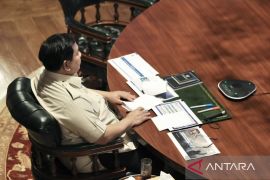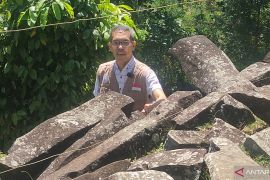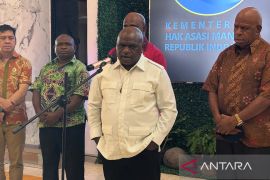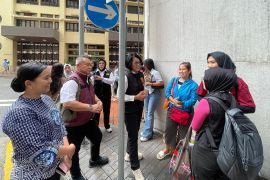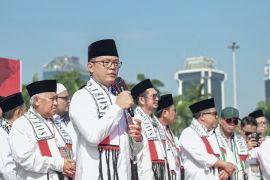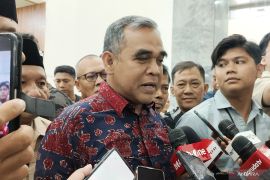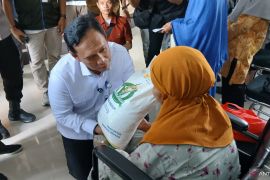TOKYO, July 17, 2018 - (Antara/JCN Newswire) - Free Electrons, the first energy accelerator program that connects the most promising energy startups with the world's leading utility companies, wrapped on its second module with an impressive total of 28 pilots running, and the final module in Berlin to come.
The 2018 program opened with 30 startups invited to Bootcamp in Lisbon, followed by Module 1 in Sydney / Melbourne, where we kicked off 15 pilots between startups who qualified for the acceleration phase and the utilities. Module 2 took place in Silicon Valley, the global tech hub, and focused on growth and learning.
Module 2 featured sessions where utilities and startups met face to face, and shared information about on-going pilots, key for maximizing performance. Earlier, startups could have only one pilot, but with this module they had the opportunity to work on multiple pilots. Knowledge was exchanged and the playing field opened up, for developing new relationships and opportunities.
The program also allowed for utilities to cooperate with each other on pilots, which is unique, and for startups to work with more utilities. Having gone through the learning curve with a utility once, they were now able to scale and start other pilots much faster.
SOLshare, already in an on-going blockchain-enabled pilot with Innogy which enables donors to select individuals or group users (like a village), is preparing a second pilot with TEPCO, to develop and field-test technology for enhancing data from DC microgrids. Verv is preparing another pilot with their home energy assistant for ESB, who just completed a successful pilot with Sterblue, and will soon be offering that solution, for monitoring rural wind farms, to their customers in Australia.
"We wanted a safe, fast and accurate solution to inspect our wind turbines, to minimize maintenance costs & generator downtime. Sterblue were super-accommodating of all our requirements," says John McKiernan, Head of External Collaboration at ESB.
"Sometimes we find it easier to work with startups rather than larger companies. They're flexible, enthusiastic and listen intently to customer's needs. This program not only introduces us to start-ups we would not otherwise have met, but its a tremendous catalyst for accelerating change and innovation at ESB."
The third day represented one of the module's high notes with the Level-Up Energy Innovation event, which presented the Free Electron participants to the Silicon Valley ecosystem. Each of the 15 startups were given the opportunity to showcase their solutions to an audience comprised of Silicon Valley investors and tech experts.
The module closed on a high note with the final tally that included 13 new pilots, which had been defined during the preceding week, and an overview of the roadmap ahead, towards the final module and closing stage in Berlin.
"Naming this program Free Electrons says a lot about the utilities' shared perspective and view regarding the evolution of power and energy industry and markets around the world," says Luis Manuel, Executive Board Member at EDP Innovation.
"Electricity as a commodity will tend to lose value over time, so we need to develop new business models and services to add value for our shareholders, and they will certainly revolve around digital, data and data management."
The Free Electrons Program
This year the program received 515 applications from 65 different countries, a testament to the global reach of the initiative. After a selection process that culminated in April with the Lisbon Bootcamp, 15 startups qualified for the acceleration phase. The final stage, which closes the program, will take place in Berlin in October.
The three international modules are the cornerstone of Free Electrons, during which the program participants will work closely with local players, utilities, mentors and other resources in order to accelerate their company's growth.
The utilities backing Free Electrons are leading innovation in the energy sector. This project embodies their commitment to work with startups in building the future of the sector with clean, smart and widely accessible energy.
The Free Electrons members are American Electric Power (USA), AusNet Services (Australia), CLP (Hong Kong), DEWA (Dubai), EDP (Portugal), ESB (Ireland), Innogy (Germany), Origin Energy (Australia), SP Group (Singapore) and TEPCO (Japan). The program is supported by Beta-i (Portugal).
About Free Electrons
The Free Electrons Program is the premier opportunity for startups in the energy space to grow and develop their businesses. The energy market has experienced rapid change with the rise of renewables, decentralization of the energy system, regulatory uncertainties and disruptive new technologies. To stay ahead, utilities must source more innovation externally and consider 'beyond utilities' business models. More at www.freetheelectron.com.
About TEPCO
Tokyo Electric Power Company Holdings, Inc. is the largest utility in Japan, serving millions of homes and businesses. Worldwide the company has more than 34 subsidiaries and 32 affiliates in 8 countries and employs approximately 42,060 people. Consolidated revenue for the fiscal year ending March 31, 2018, totalled 5.8 trillion Japanese yen. TEPCO was established in 1951 and is listed (TSE:9501) on the Tokyo Stock Exchange. Please visit www.tepco.co.jp.
Reporter: PR Wire
Editor: PR Wire
Copyright © ANTARA 2018


